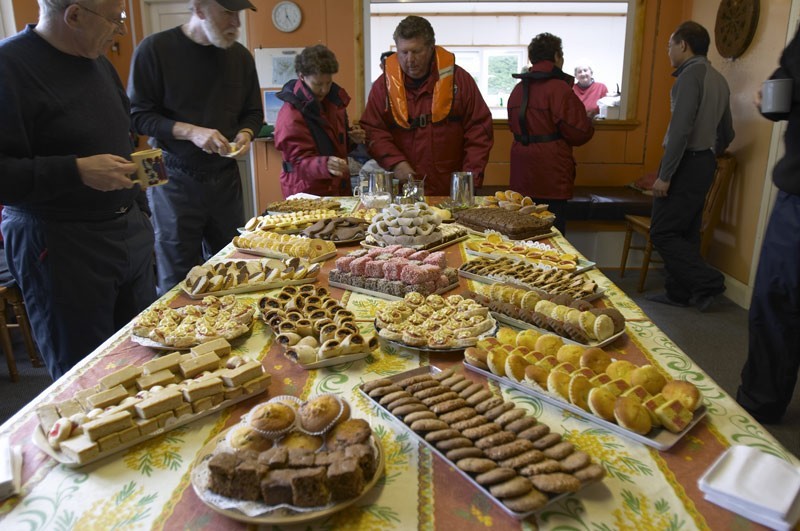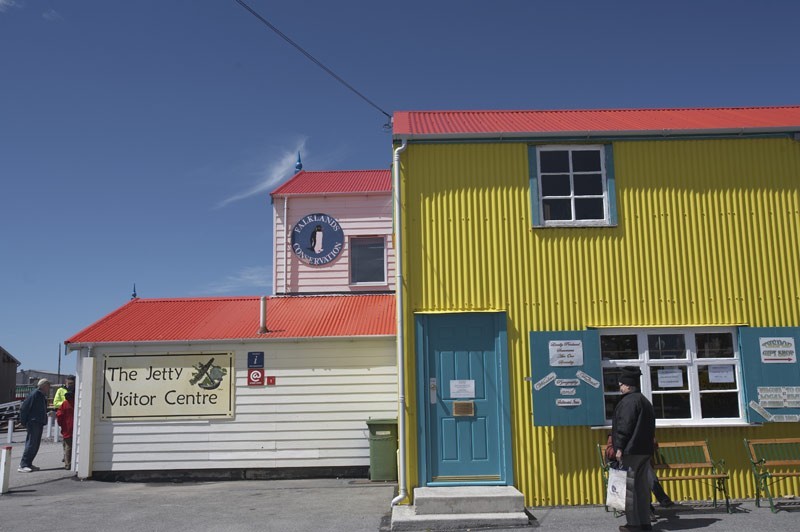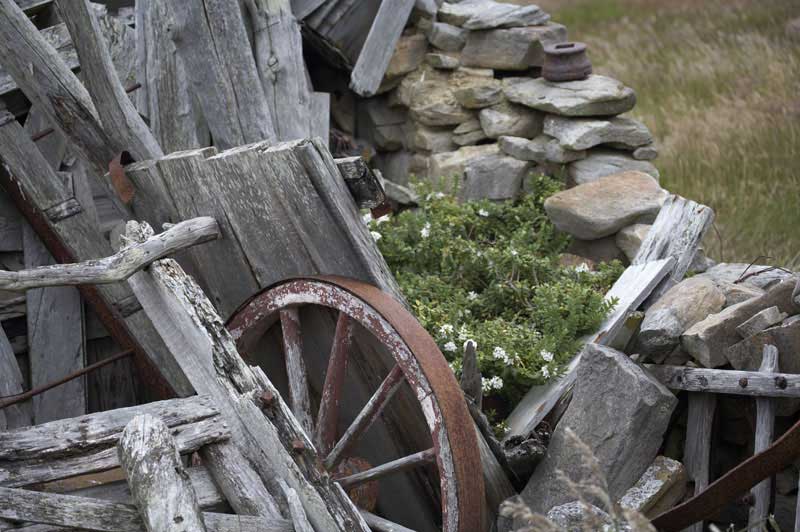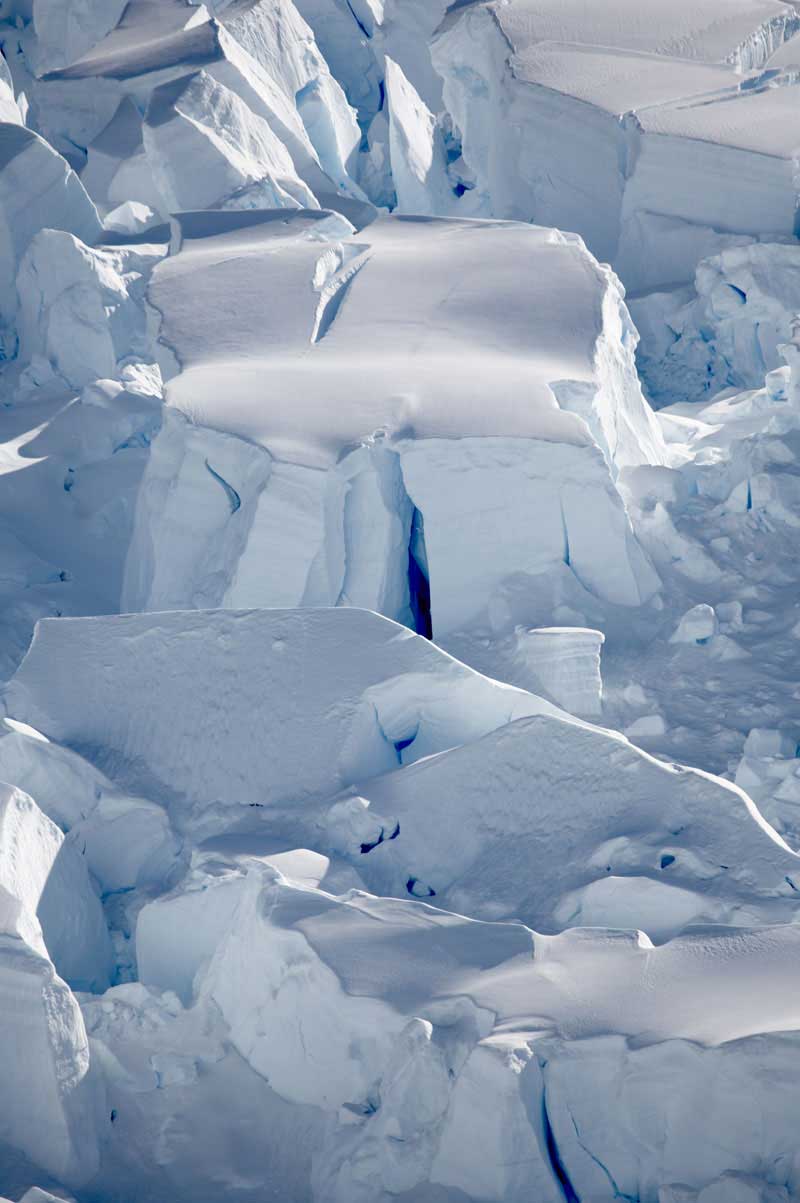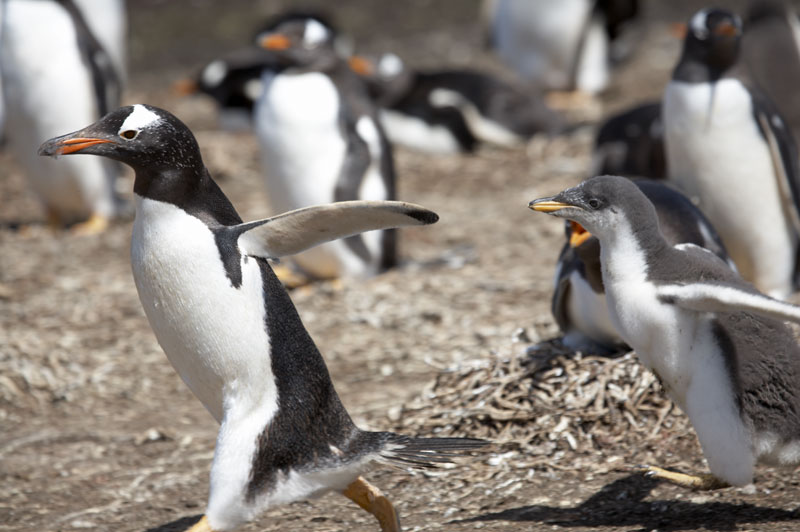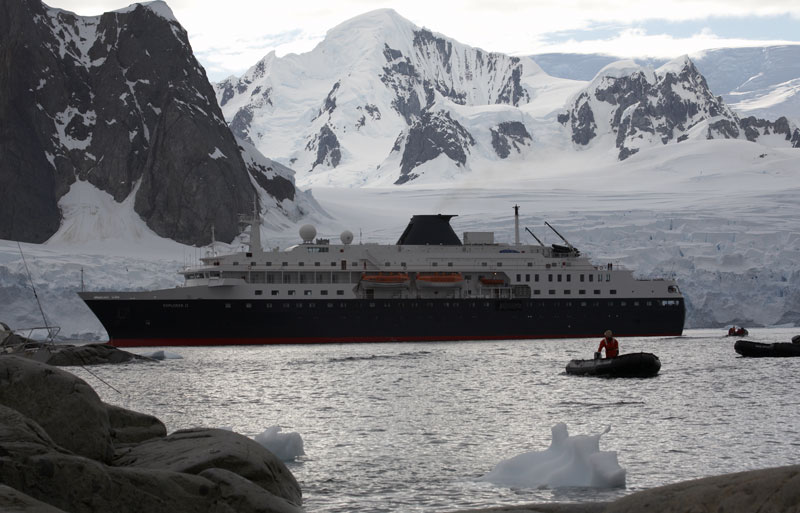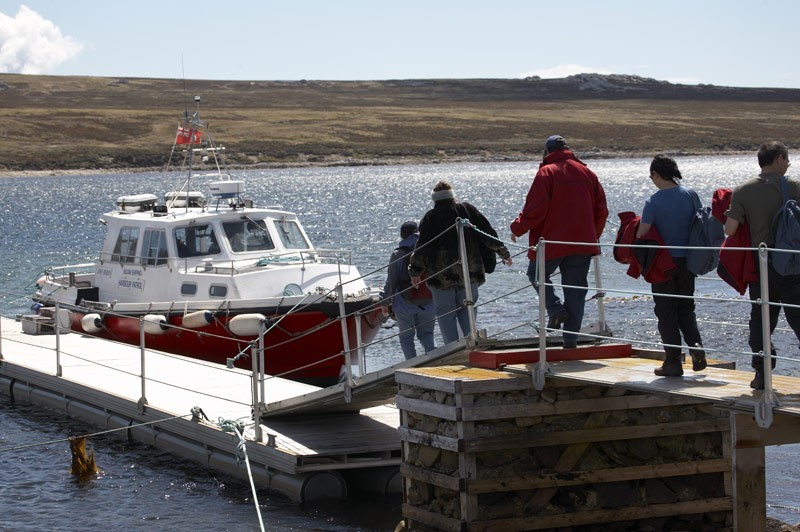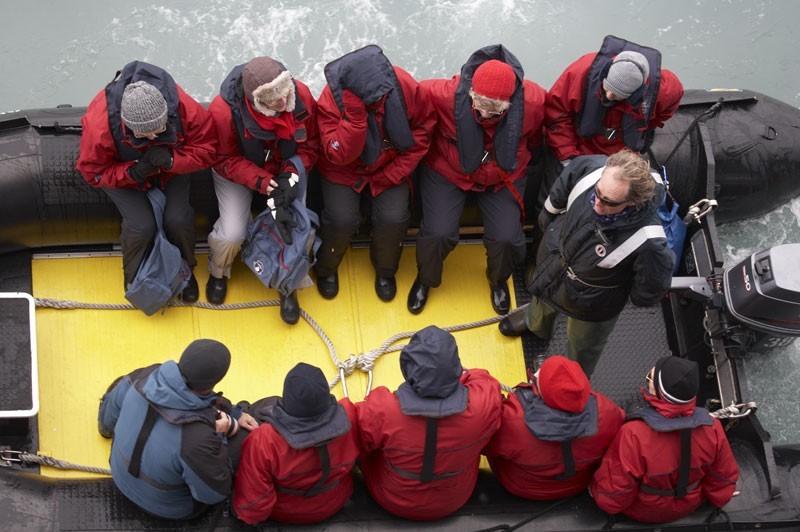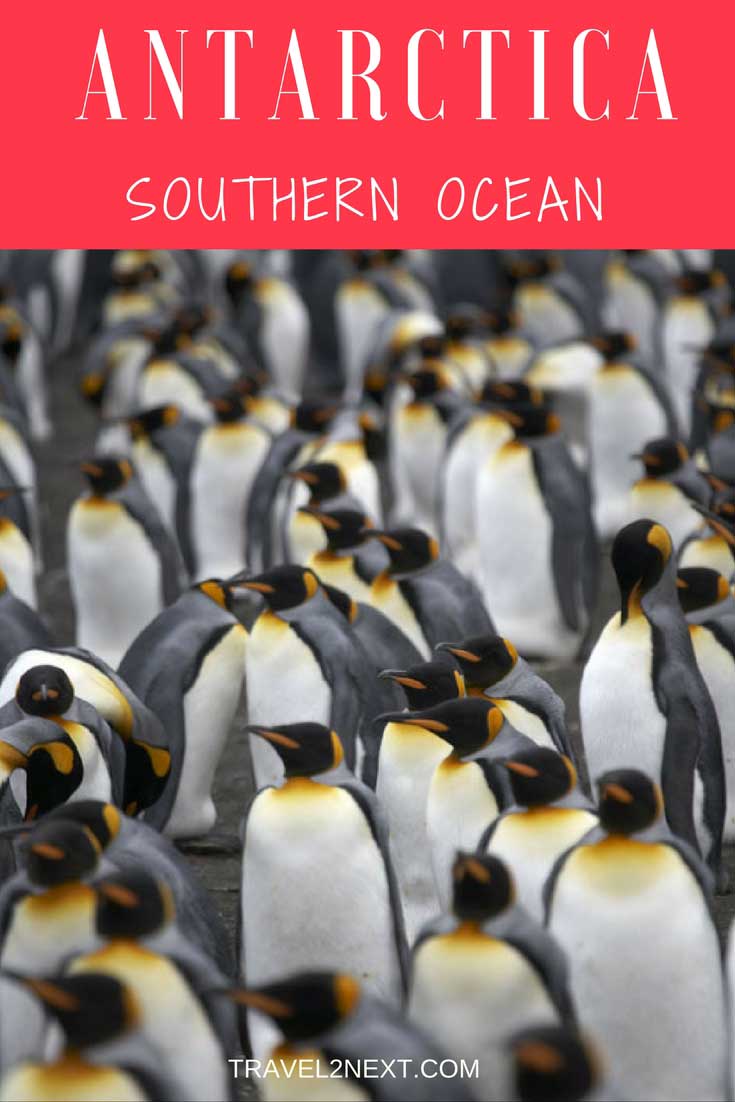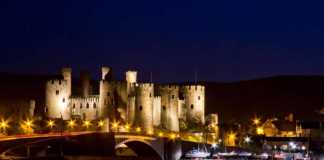The sky shimmers with orange-gold clouds as we cruise past a white shelf of ice. The wind stings my face and cold seeps through my polar layers. The whoosh of the ship slicing through waves provides a background track to the discordant chorus of squawking gulls overhead. I brace against the wind, shivering, but I’m determined to watch the sunset from deck.
I’m cruising the Southern Ocean on an expedition ship. Here are some highlights:
Falkland Islands – rambling hikes and English pubs
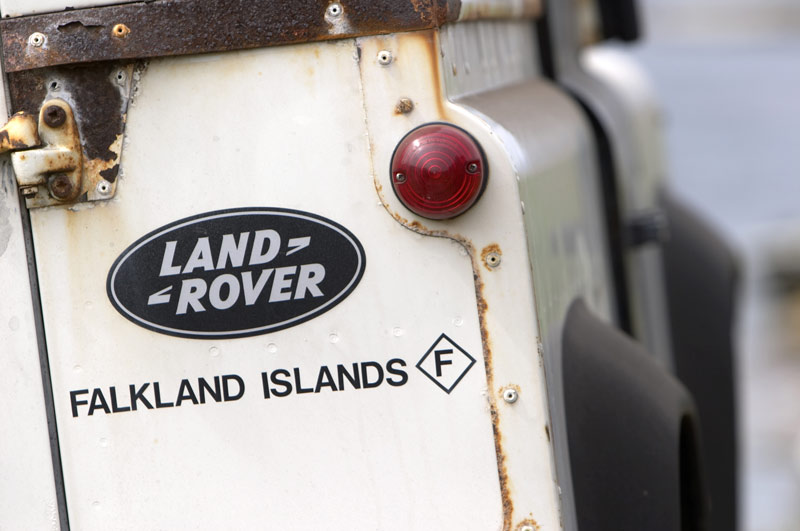
The treeless landscape has a haunting rock-strewn beauty where moss-covered hills are speckled with fragrant ferns and yellow blooms of sea cabbage. The Falkland Islands reminds me of the Scottish Highlands.
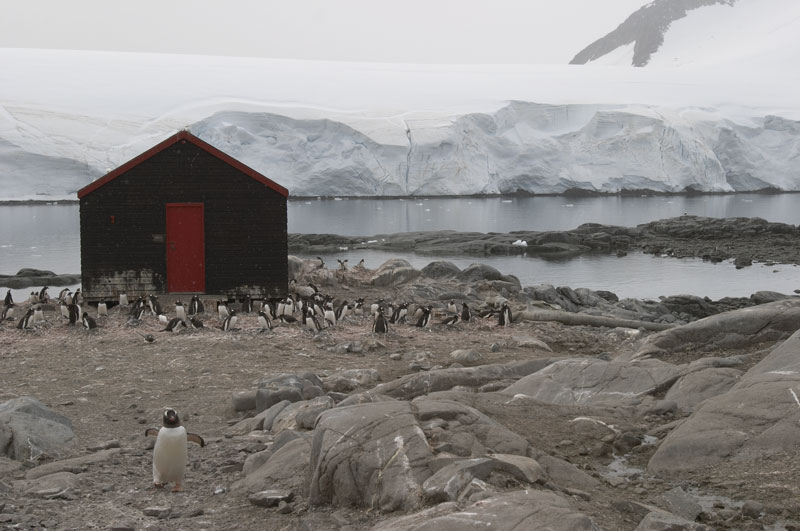
At New Island, the western-most inhabited island of the Falklands archipelago, a three-hour uphill trek brings us to a bird rookery where thousands of black-browed albatrosses, rockhopper penguins, with long yellow head tassels, and blue-eyed shags nest together.
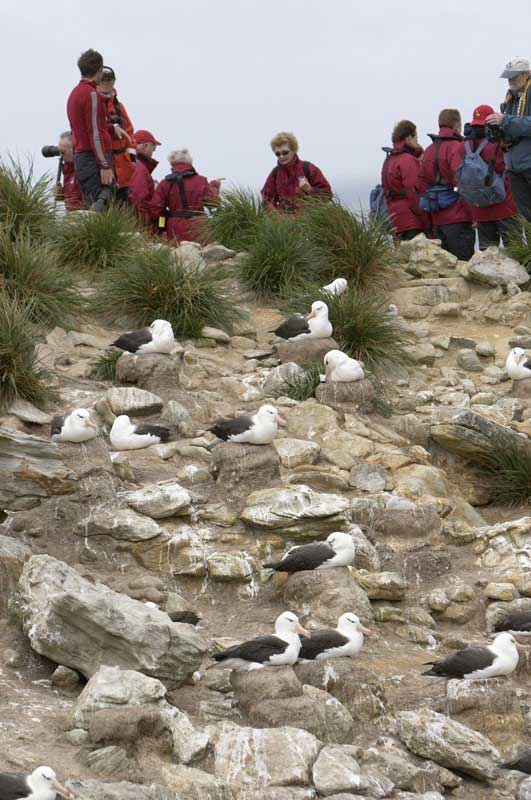
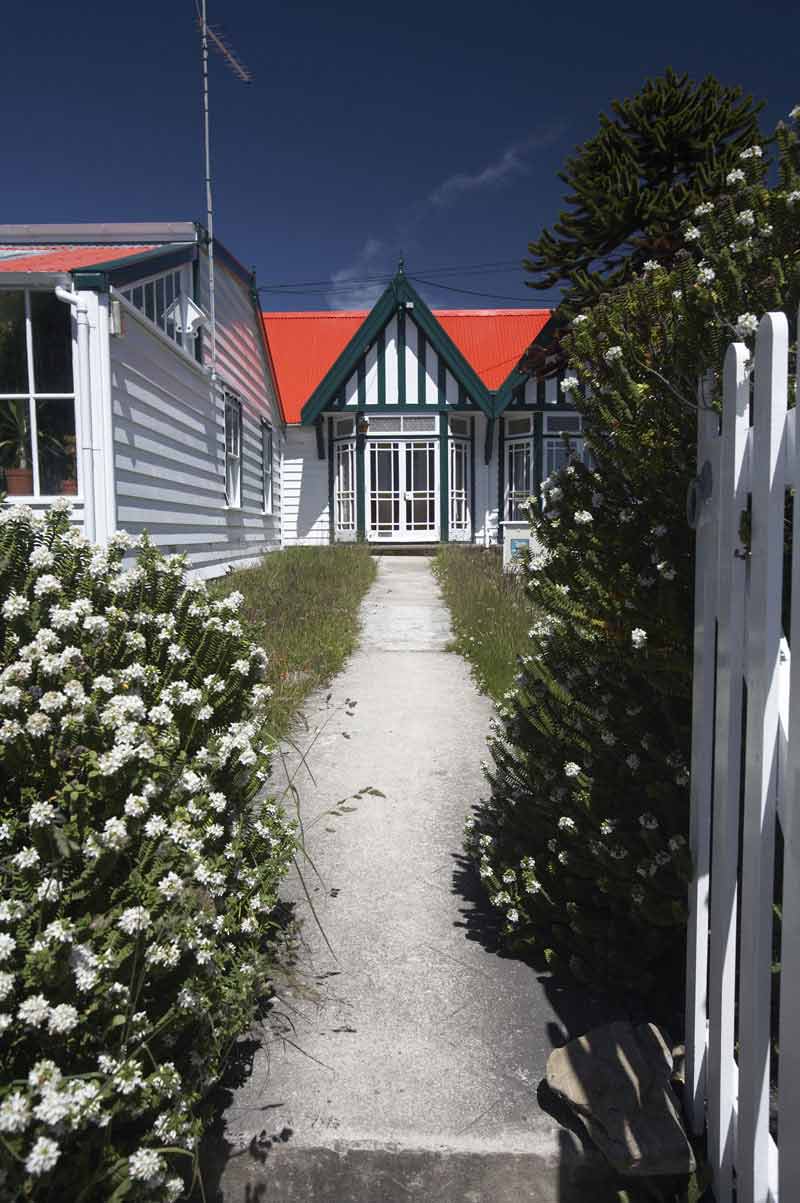
The capital, Stanley, offers several touring choices including the battlefields of the Falklands War, a sheep farm and a penguin rookery. And there’s plenty of time to wander amongst brightly painted buildings in town.
The sun is shining as we stroll past the Christ Church Cathedral, with its distinctive whale jaw bone arch, past the 1982 war memorial, the Falkland Islands Museum and into a cosy English pub for a well-deserved pint.
South Georgia – Shackleton history and dramatic scenery
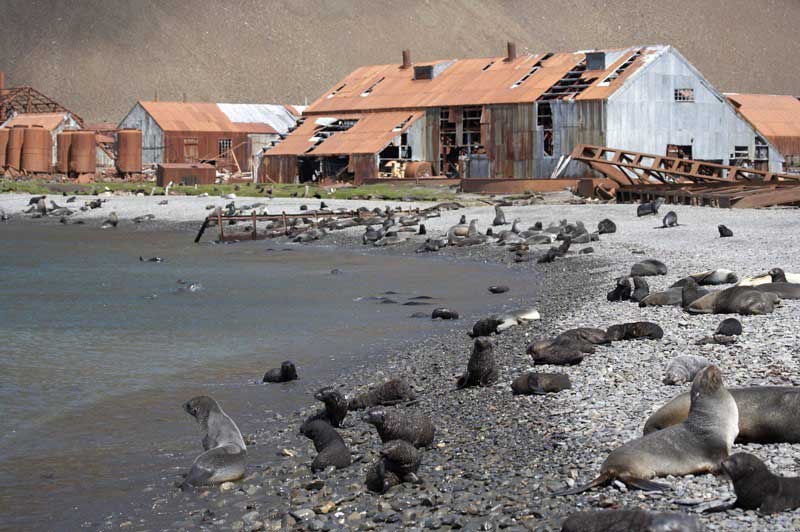
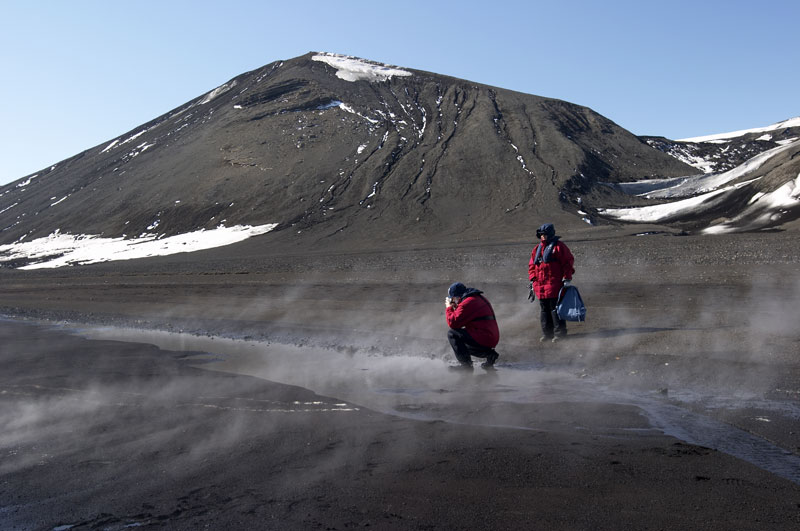
Stromness, the Norwegian whaling station where Shackleton was rescued, is a ghost town.
A welcoming committee of fur seals stare curiously from their playground of old cables, dismantled propellers and other rusty parts left over from decommissioned whaling ships.
Over 170,000 whales were processed through South Georgia’s whaling stations before the International Whaling Commission voted to protect whales in the Southern Ocean.
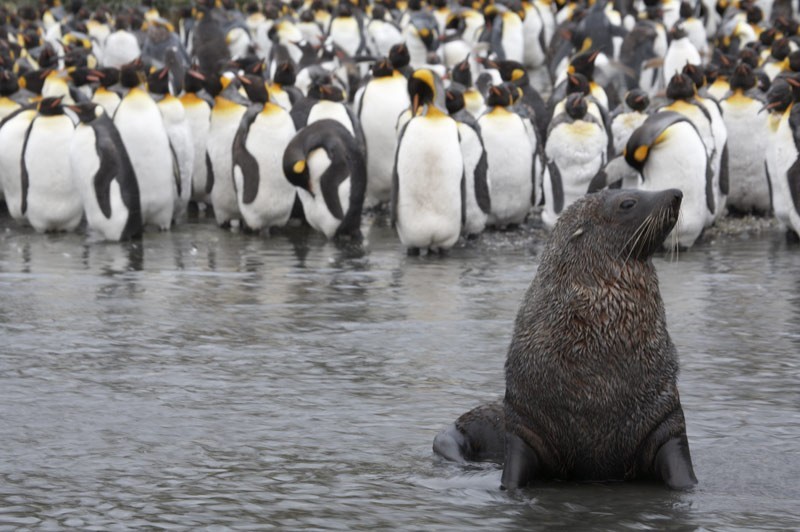
From the beach, we walk along a boggy trail past playful seal pups and reindeer (brought here by Norwegian whalers) to the waterfall Shackleton made famous.
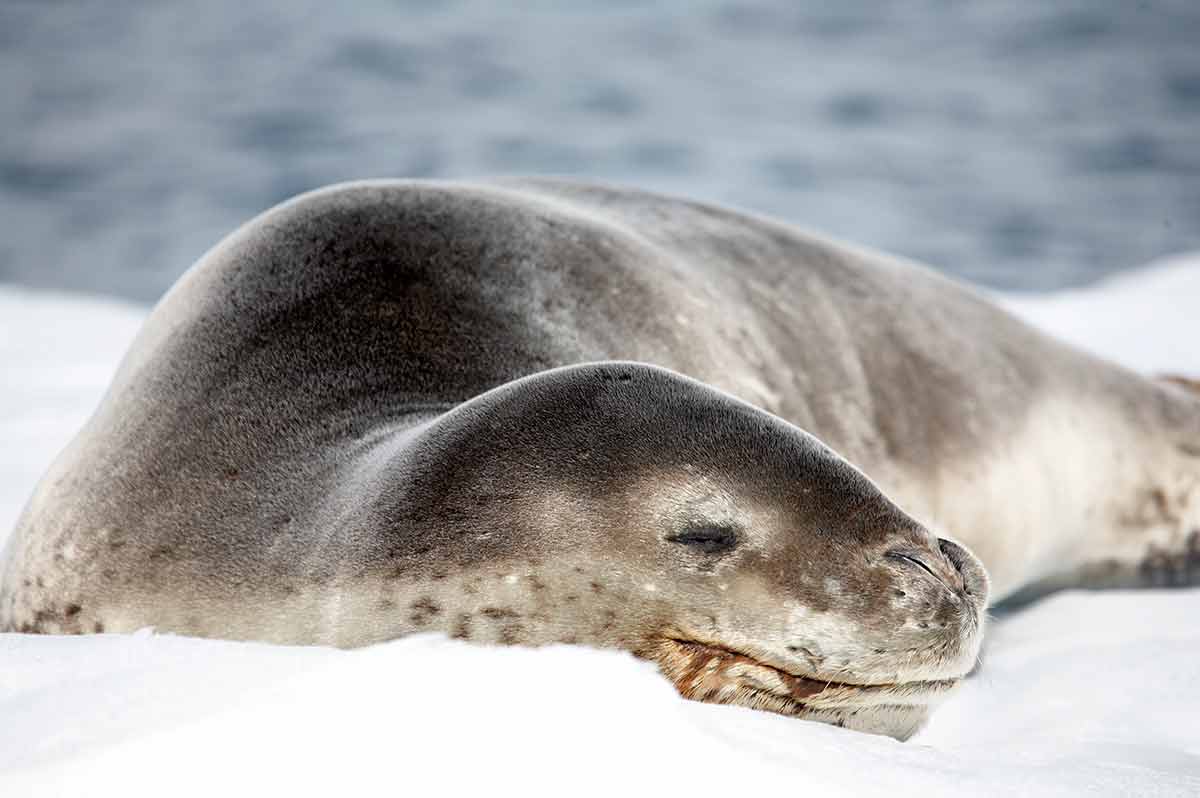
Then a landing at Grytviken brings us to the whaler’s cemetery and Shackleton’s grave.
The bay is scattered with rusty whale-catching boats, blubber cookers and whale bones.
A Norwegian church is a picturesque sight amidst green fields and the backdrop of the snow-capped Allardyce mountain range. Next to the church there’s a post office and a small whaling museum.
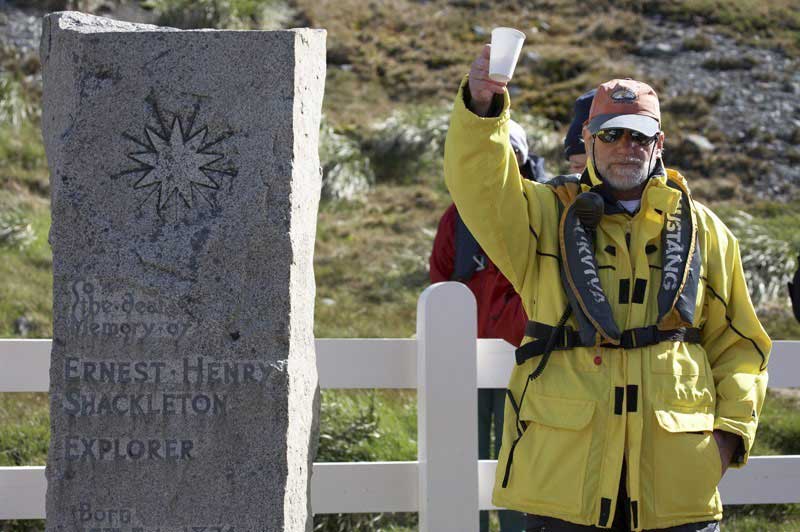
A challenging bellow is followed by a charge across the sand. Then pairs of testosterone-laden males rear up and slam their bulks into one another.
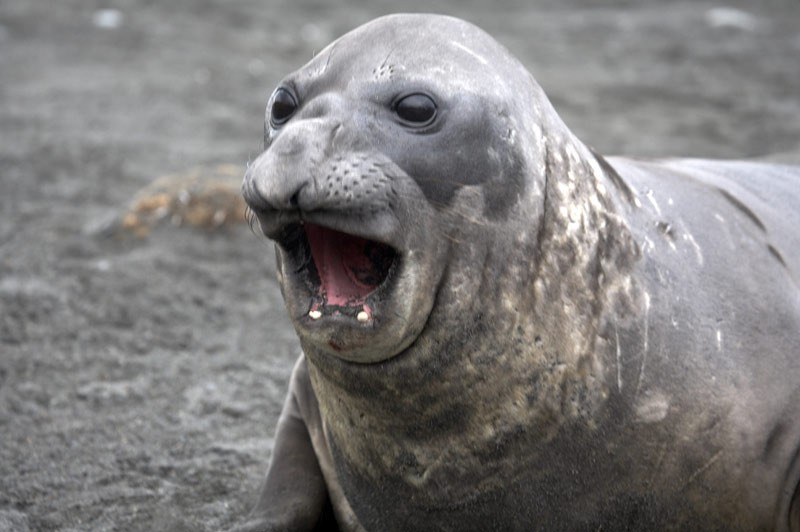
Further along, at a king penguin colony, home to an estimated 25,000 penguins, I truly appreciate the meaning of “cacophony”.
Penguins court with head-bobbing walks and trumpeting calls. Cries from last season’s chicks mingle with the whirring calls of adult birds to create a cacophonous natural symphony.
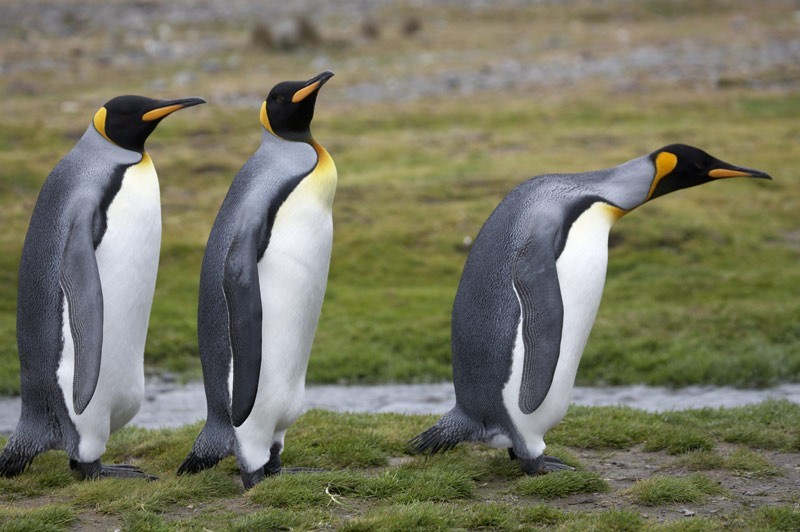
Antarctica – the final frontier
It’s a gorgeous summer day on the north-western shore of the Antarctic Peninsula. The air is cool and crisp with not a whisper of breeze or a cloud in the sky. Antarctica is the driest, highest, windiest and coldest continent on earth, almost twice the size of Australia.
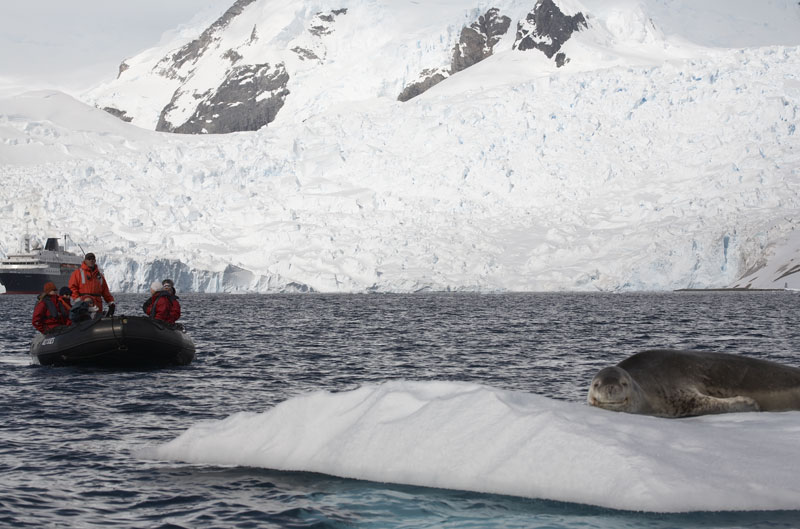
To the thousands of penguins along the coast, we must look like an army of clumsy giant red creatures lumbering onto shore.
Stepping ashore is like being in a David Attenborough documentary with 3D vision. Each place is different to the last.
Amphitheatres of blue icebergs drift by at Skontorp Cove. At Paradise Bay, our expedition leader is cautious about disturbing a leopard seal dozing on an ice floe. The seal could effortlessly puncture our inflatable boat with its massive jagged teeth.
Antarctica is the home of Happy Feet. We walk on snow at Petermann Island, encountering Adelie penguins along the path; we watch gentoo penguins diving into the icy ocean at Neko Harbour; and chinstrap penguins feeding their chicks.
When the ship returns to Ushuaia at the end of the cruise, I realise that I will miss waking up each day to vistas of glacial mountains and blue ice, to the bass-like grunts of seals and trumpeting penguin calls. And even to the unmistakable smell of guano.
Saving the environment
A ban put in place by the International Maritime Organization means that ships sailing to Antarctica from 1 August 2011 were no longer be able to carry and burn heavy fuel.
Spillage of this type of fuel is considered a risk to the fragile environment and accidents, such as the sinking of MS Explorer, do happen. This ban made it uneconomical for larger ships to continue operating in Antarctica.
“I came away from my first trip to Antarctica respecting the environment more than I could ever imagine. More stringent environmental controls to keep Antarctica pristine are a positive thing,” says Craig Bowen, managing director, Cruise Traveller. The company offers small ship expeditions to Antarctica and other amazing places around the world.
“The small number of ships cruising to Antarctica will make the experience all the more special,” says Bowen. Other luxury expedition ships that cruise the Southern Ocean are Abercrombie & Kent’s MV Le Boreal and Silversea’s Prince Albert II.
Passengers joining a small luxury expedition cruise can expect luxuries such as gourmet meals, hotel-style cabins or suites, attentive service, saunas, gyms, libraries and beauty salons. Education is a key component. Onboard experts such as ornithologists, historians, naturalists and geologists help passengers gain a deeper understanding of the region. Shipboard lectures range from penguin behaviour to global warming, ocean birds to Antarctic history.
Christina Pfeiffer was a guest of Cruise Traveller
Discover Southern Ocean
LAN flies to Santiago with connections to Ushuaia.
Cruising there
Cruising season is from November to March. Cruise Traveller offers cruises to the Falkland Islands, South Georgia and Antarctica.
Travel essentials
Pack seasick medication, sunscreen, sunglasses and lip balm. Dress in warm lightweight layers as the weather can change suddenly. For suitable clothing see The North Face.
Plan Your Trip
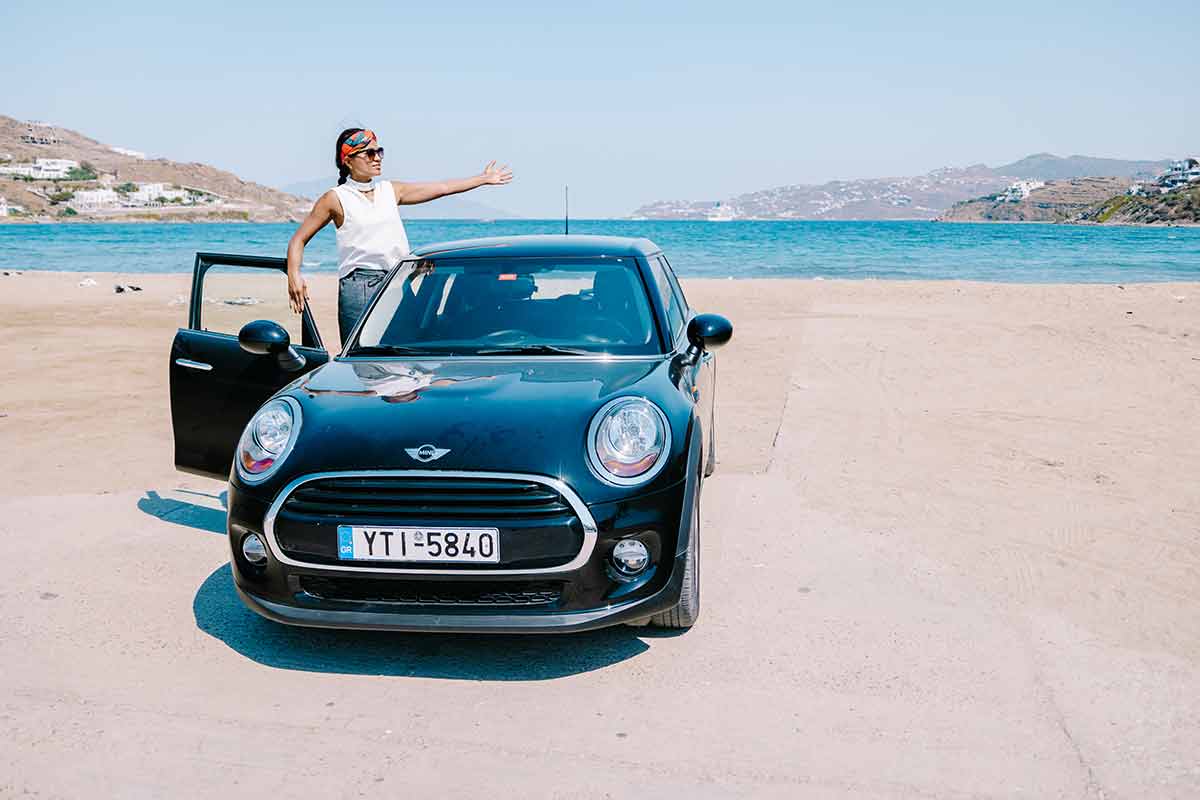
Rent A Car – Find the best car rental rates at Discover Cars. They compare car hire companies to provide you with the best deal right now.
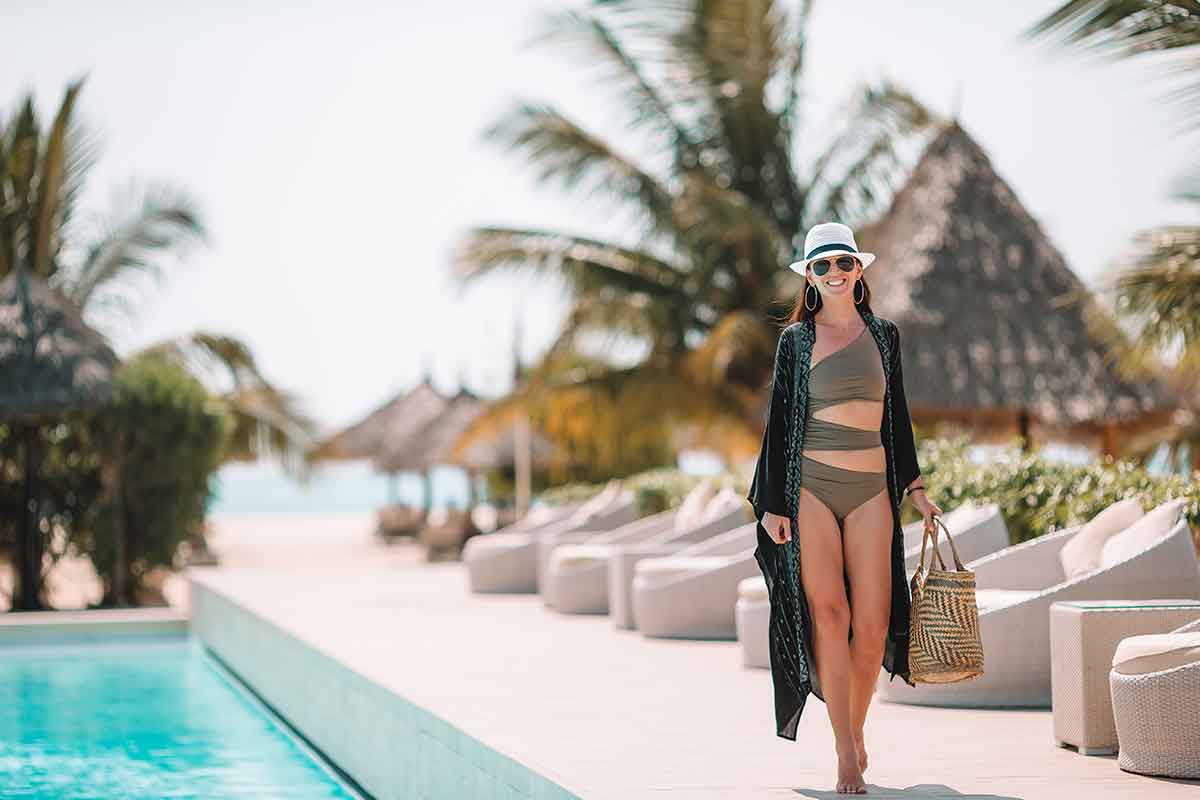
Find A Hotel – If you’re curious about this article and are looking for somewhere to stay, take a look at these amazing hotels.
